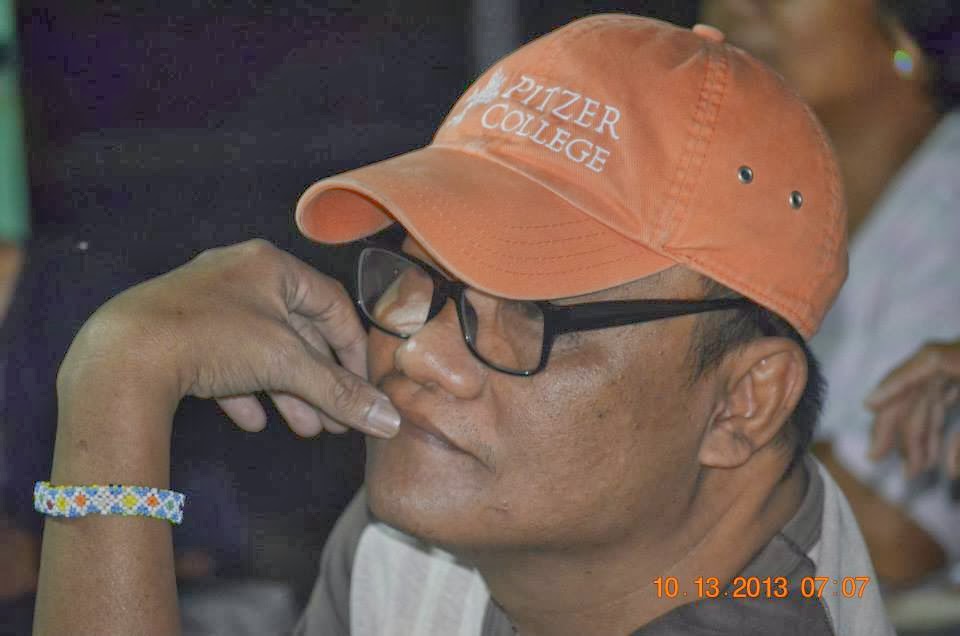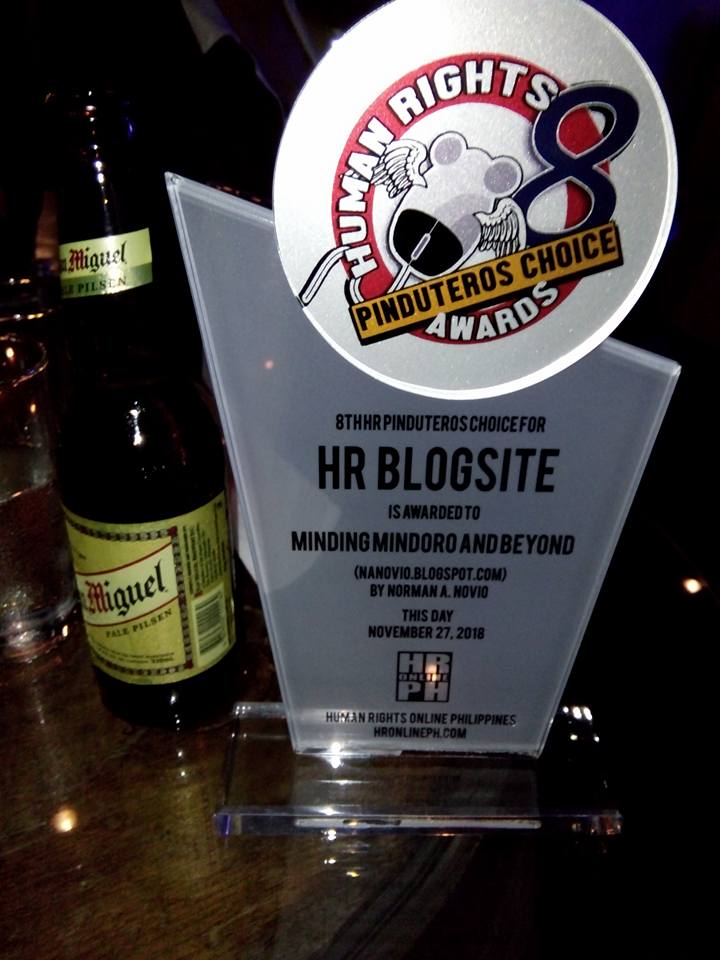
I am not a product of a Catholic school and now I deeply regretted it. I bolted out of the Divine Word College of San Jose (DWCSJ) as a Bachelor of Arts (AB) student in early 80’s simply because of financial hardships. Also, I am bored on attending retreats and recollections including subjects concerning religion and spirituality. Nobody in our subjects and gatherings openly talk about the US military bases, about academic freedom and other burning issues of the day then, or anything negative about the dreaded Marcos government. Over and above, my poor parents could not afford, financially-wise, to keep me there. As expected, I suddenly dropped college and find work for a living. I felt like the poor man Andres Bonifacio, who was unable to go to any of the learning institutions dominated by the “ilustrados” during his time.
But outside the walls of DWCSJ are nameless teachers, rich experiences and supportive co-learners from streets, workplaces and rural communities. People who do not have to wear Levis and puff Philip Morris to gain awe and respect. A learning institution spelled L-I-F-E, where you could enroll with nothing but sheer courage, hard work and enthusiasm to discover the academy itself. From the motor pool of a DPWH project in Laguna sub-contracted to E.E. Lite Corporation, the construction site of the PAF Satellite tower in Tagaytay, in South China Sea as an apprentice fisherman, the dirty kitchen of NFA canteen as errand boy, to the picture lab of Kodak-Premier Photo,- I was in those places.
DWCSJ is the most prominent,- particularly when it comes to number of enrollees, Christian academic community in the province. Here is their mission statement : “DWCSJ commits itself to provide the students a Christian liberal education with technical and professional competence in line with local, regional, national and global development goals. It also binds itself to develop and enhance the intellectual, spiritual, moral and physical capabilities of the members of the academic community through its religious, educational and administrative services towards professionalism and competence.” There are other Catholic schools in Occidental Mindoro, actually called Vicarial schools : Holy Family Academy in Central, San Jose, Colegio de San Sebastian in Sablayan, West Mindoro Academy in Mamburao, San Rafael High School in Abra de Ilog, and Stella Maris School in Lubang.
DWCSJ and the rest of the Catholic schools are “an educational power” where the past pupils and alumni are potentials for social transformation and conversion. An institution, I presume, where ethics before knowledge is emphasized. But sometimes it’s hurting to find out and realize that there is a mismatch between what is learnt inside the classroom and what is done in society, therefore what is learnt in school does not lead to social transformation and Gospel-inspired spirituality. There are known politicians and private citizens, for example, coming from prominent Catholic schools in general who support or sponsor vices and all forms of gambling. There are those who graduated in Catholic institutions who are involved in crime and other wrongdoings. There are also businessmen who only think of their profit neglecting social responsibility. There are some who prostitute their talents for bad politicking thus sustaining the traditional political culture and its evils. Some willingly abhor to the will of their political patrons or bosses instead of using their abilities and sense of duty taught by missionary priests and scholastic nuns during their youth. Former priests (and seminarians) included. Now, who says that schooling is a cure or solution for social phenomenon (criminality, immorality, etc.) which we do not like? Surely, those are just few bad tomatoes in a huge veggie basket called Catholic education. Or, they have their own personal reasons for it, so might as well respect them.
To my mind, there are still things needed to be done in Catholic education system, to wit : First and foremost is to recognize the critical importance of teachers. They must be periodically re-educated and trained not only on skills but especially in moral and religious education. Faculty and students must collaborate or establish network among civic, advocacy groups and organizations and this must be strengthened and sustained. Active teachers from Catholic schools are also expected to participate in charitable and social action works of Catholic-run institutions or get involved in the pastoral works of their respective parish,- like membership in religious organizations or taking part in liturgies,- to mention a few.
In 1987 I went back to college. I loved being in a place where discussions on socio-political issues are open and allowed, in and off campus. Along with our teachers, we discussed national situations and we organized ourselves into a potent force which toppled of our school administrator via ala-EDSA People Power fashion. I am so proud of my alma mater,- the Occidental Mindoro National College or OMNC.
But I really wish I finished my AB at DWCSJ because I believe in what people say that education built upon Christian values prepares the future public servant (or those who are destined to wield power and authority) for the tough job ahead. We have high expectations on these Christian Catholic leaders because we believe that they believe that the kind of education which forms character and produces faith in sound principles of life comes through personal influence and example.
I truly regretted not being a DWCSJ alumnus. Instead, I sent my eldest there four years ago for his secondary education because his mother told me that every student from a Catholic school is expected to acknowledge the immense role of the Holy Spirit as a silent worker telling her/him where to go, how to act (or not to act) in any given situation, whether in their private or public life.
I am just taking this as a consolation for me : academic superiority or any achievements in school enhance the power obtained and shared by our mentors, but the ethical value of it depend on how we use it. Any school work or academic endeavor opens an opportunity that a thing may be, but the probability that it will happen depends on the individual person, and it may be nil or contrary to what is expected or desired. May my only son live to the ideals of DWCSJ all throughout and like Andres Bonifacio, may he rise above his personal needs for the sake of higher and greater cause – freedom and justice based on the teachings of the Church. For both he and Bonifacio share the same birth date today.
Was it really depends on the student, the school or the system?...
-----
(Photo: aerial shots of DWCSJ from Jamil V. Estorninos’ Facebook album, “For Those Who Miss Home”; This picture drove me to post this blog entry -NAN)











